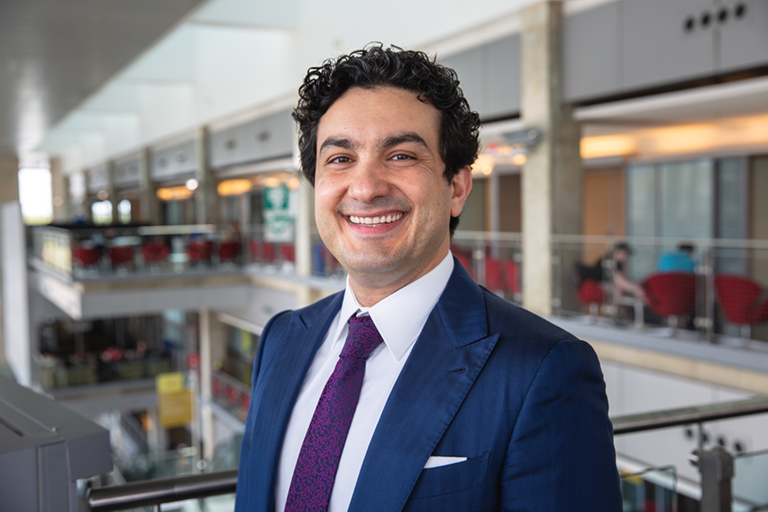Associate Professor of Operations and Supply Chain Management
Executive Director, IU Business Sustainability and Innovation Lab
OneAmerica Foundation Endowed Chair
As he leads physicians in the discussion of operations management, Amrou Awaysheh frequently hears common misconceptions about the field.
“Physicians often experience external consultants who come into their hospitals concerned about nitpicky details that take away from the big picture and the value add that operations can bring to healthcare,” says Amrou. “It’s my job to help physicians understand how to break down the processes at their organizations and discover where improvements can help them achieve their goals.”
In the Physician MBA Program, Amrou leads the Operations Management course, which introduces physicians to operations management concepts and tools they can use to produce better quality care, lower costs and increase revenue. Ultimately, Amrou says it’s about learning how to create value in your healthcare organization.
“I help physicians break down their operations to understand its various elements and where they can compete – whether that’s on cost, quality, responsiveness, or the variety of healthcare services provided,” he says. “Based on where you want to compete and your overall strategy, you can begin crafting an operations strategy. If you set a strategy of being very innovative, you aren’t worried about costs. If you’re a low-cost provider, your goal should be to optimize system to maintain those low costs.”
In addition to instructing MBA students, Amrou is the executive and founding director of the Business Sustainability Lab and a research fellow at the IU Kelley Center for Manufacturing Excellence. His research focuses on how firms leverage and understand data to enhance their operations and supply chains to improve their financial performance. He focuses on business sustainability practices, in which firms can enhance worker welfare or improve their impact on the natural environment. By engaging in these practices, firms improve operations and enhance profitability.
Over the last 15 years, Amrou has consulted on over 50 global, corporate social responsibility initiatives with Fortune 500 firms in projects that resulted in savings of over $1.35 billion and revenue increases of over $419 million. Amrou is also familiar with the practicalities in the business of healthcare. His wife, Lina, is a dentist, and Amrou has spent time running clinics and gaining a greater understanding provider responsibilities.
“The goal of my course is to give physicians the tools and capabilities to have a seat at the table where decisions are made,” he says. “Our students don’t want to become an operations manager – the MBA equips them to become better healthcare managers and better physician leaders.”


